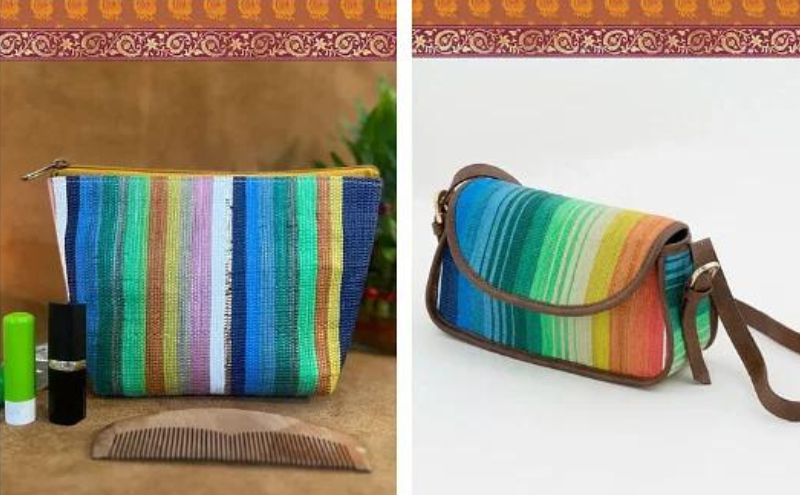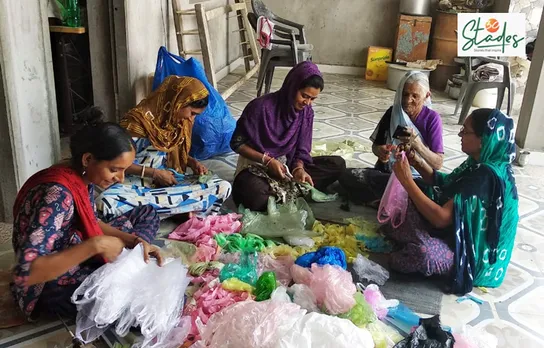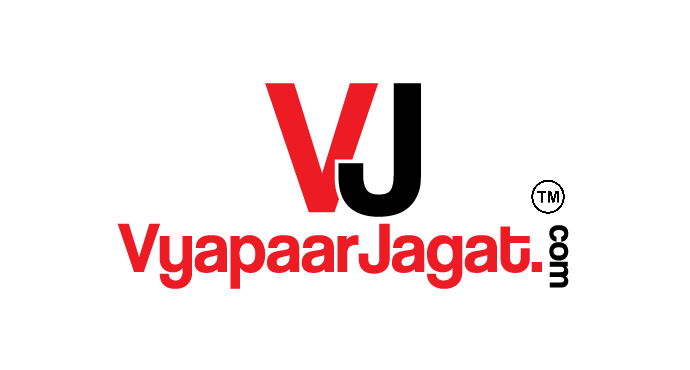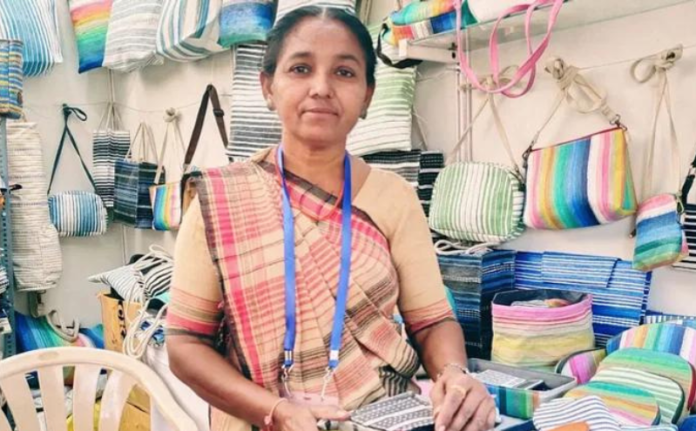Rajiben Vankar’s journey began as a young girl in Kotay village, Gujarat. Hailing from Kotay village in Bhuj, Gujarat, Rajiben grew up in a family with six sisters and one brother. Unfortunately, she wasn’t allowed to attend school, as her father believed that education held no value for women, who were expected to stay home and manage the household. Nevertheless, Rajiben secretly attended school until her mother discovered her actions, leading to the immediate termination of her education.
As her family depended on farming for a living, they struggled to make ends meet during the off-seasons. At the age of 12, Rajiben learned the art of weaving khadi in secret from her cousin.
Despite societal norms and challenges, Tragically, her husband passed away after 12 years of marriage, leaving her devastated and penniless. In search of a means to support her children, Rajiben started working as a laborer in fields and construction sites, enduring unwanted advances from men.
She longed to return to weaving, but the lack of funds prevented her from acquiring a loom, making it seemingly impossible. After facing personal tragedy and struggling to find work, she joined an NGO called Khamir, which provided her with a platform to showcase her talent.

It was during her time at Khamir that Rajiben’s life took a new direction. She came across a designer who showed her a bag woven from plastic, sparking her interest in upcycling waste materials.
Rajiben began experimenting with weaving plastic and received positive feedback for her creations. Inspired by her success, she decided to start her own enterprise, focusing on upcycling plastic waste.
With the support of Kaarigar Clinic, an organization connecting rural artisans with urban buyers, Rajiben established her craft enterprise. She trained women from various villages to clean, cut, and weave plastic, creating products like bags, trays, and planters. Through her enterprise, Rajiben not only generates livelihoods for 30 women but also contributes to waste reduction by upcycling around 600 kg of plastic each year.
The process involves collecting plastic from local communities, cleaning and preparing it for weaving. Women from the Vankar community, who possess weaving skills, handle the weaving process, while others cut the plastic strips. The enterprise pays the women for their work, providing them with a source of income that fits their family responsibilities.
Empowering the Environment through Entrepreneurship

In 2018, Rajiben showcased her skills and upcycled plastic products in London, gaining invaluable exposure and experience. The following year, she decided to start her venture, Rajiben, as she believed her team deserved more recognition for their efforts.
She embarked on a remarkable entrepreneurial journey, establishing her all-women craft enterprise with a noble mission to help the environment. Her eponymous enterprise has since become a beacon of sustainability, making a significant impact in the fight against plastic pollution.
Every year, Rajiben’s enterprise collects approximately 600 kg of plastic waste, skillfully upcycling around 400 kg through weaving techniques. The remaining unusable plastic is responsibly sent to recycling units, ensuring a zero-waste approach to their operations.
Today, Rajiben collaborates with 30 women from various villages, including Bhuj, Bhujodi, Kukma, Lakhond, and Madhapar, all located in Bhuj taluka. Together, they create a stunning array of upcycled plastic products such as bags, pouches, trays, planters, spectacle cases, and more. Each product not only showcases creativity and craftsmanship but also embodies a commitment to environmental preservation.
Rajiben’s venture has gained recognition, and her products are marketed through Kaarigar Clinic and other platforms. Despite challenges, such as the impact of COVID-19 on sales, Rajiben remains determined and continues to innovate.her business is of 17 lac and she has upcycled more than 3,00,000 plastic bags from landfill. She plans to expand her enterprise further by incorporating upcycling of old clothes.
As Rajiben’s children pursue their own careers, her daughter has joined the enterprise, embracing her mother’s legacy of transforming waste into useful products. Rajiben’s story is an inspiring example of how a determined individual can create a successful business while making a positive environmental impact. Her journey exemplifies the power of upcycling and demonstrates the potential for economic empowerment through sustainable practices.
Inspired by Rajiben’s success, Kaarigar Clinic is introducing similar training programs for tribal women in Maharashtra, furthering their mission to empower women and save the environment. Kaarigar clinic is not only market platform but it creates artisan identity and develop them as an entrepreneur. Rajiben dreams of a Rajiben-like presence in every village, empowering women and fostering financial independence. She hopes to employ designers in the future, expanding the scope of her impactful enterprise.






